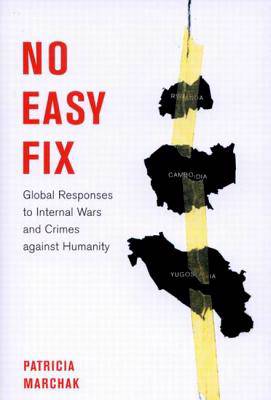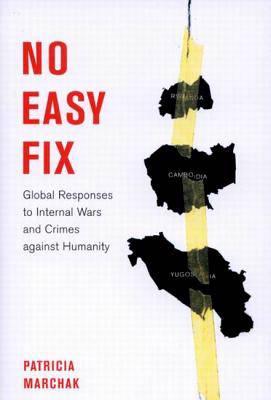
Bedankt voor het vertrouwen het afgelopen jaar! Om jou te bedanken bieden we GRATIS verzending (in België) aan op alles gedurende de hele maand januari.
- Afhalen na 1 uur in een winkel met voorraad
- In januari gratis thuislevering in België
- Ruim aanbod met 7 miljoen producten
Bedankt voor het vertrouwen het afgelopen jaar! Om jou te bedanken bieden we GRATIS verzending (in België) aan op alles gedurende de hele maand januari.
- Afhalen na 1 uur in een winkel met voorraad
- In januari gratis thuislevering in België
- Ruim aanbod met 7 miljoen producten
Zoeken
€ 56,95
+ 113 punten
Omschrijving
The UN has adopted a responsibility to protect mandate for humanitarian intervention in civil wars - but there is no institutional basis for carrying out that mandate. Patricia Marchak argues that unless would-be interveners have an understanding of local issues, agents who speak local languages, and a military force fully prepared to undertake both peaceful and military missions on short notice, UN and other attempts to intervene are unlikely to succeed. While UN-sponsored international criminal courts have been successful in obliging leaders to accept responsibility for their actions during bitter internal wars, Marchak argues that they may not be the best means of bringing truth and reconciliation to survivors. Based on the principle of individual responsibility, they are not designed to deal with collective crimes against humanity and genocide, nor are they good instruments for dealing with the breakdown of societies. Bringing together her own field interviews, documentary material, and secondary sources, Marchak critically assesses the recent history of international interventions and criminal prosecutions. She examines three cases in detail: Cambodia, Rwanda, and the former Yugoslavia in its current forms of Bosnia and Serbia, considers their international context prior to and during internal wars, and argues that each case has to be understood in its own context and history - there is no common pattern and no easy fix that could mend broken societies after the wars. No Easy Fix is of interest to anyone concerned with how the international community deals with civil wars that involve serious crimes against humanity.
Specificaties
Betrokkenen
- Auteur(s):
- Uitgeverij:
Inhoud
- Aantal bladzijden:
- 400
- Taal:
- Engels
- Reeks:
Eigenschappen
- Productcode (EAN):
- 9780773533684
- Verschijningsdatum:
- 26/03/2008
- Uitvoering:
- Hardcover
- Formaat:
- Genaaid
- Afmetingen:
- 165 mm x 229 mm
- Gewicht:
- 739 g

Alleen bij Standaard Boekhandel
+ 113 punten op je klantenkaart van Standaard Boekhandel
Beoordelingen
We publiceren alleen reviews die voldoen aan de voorwaarden voor reviews. Bekijk onze voorwaarden voor reviews.









